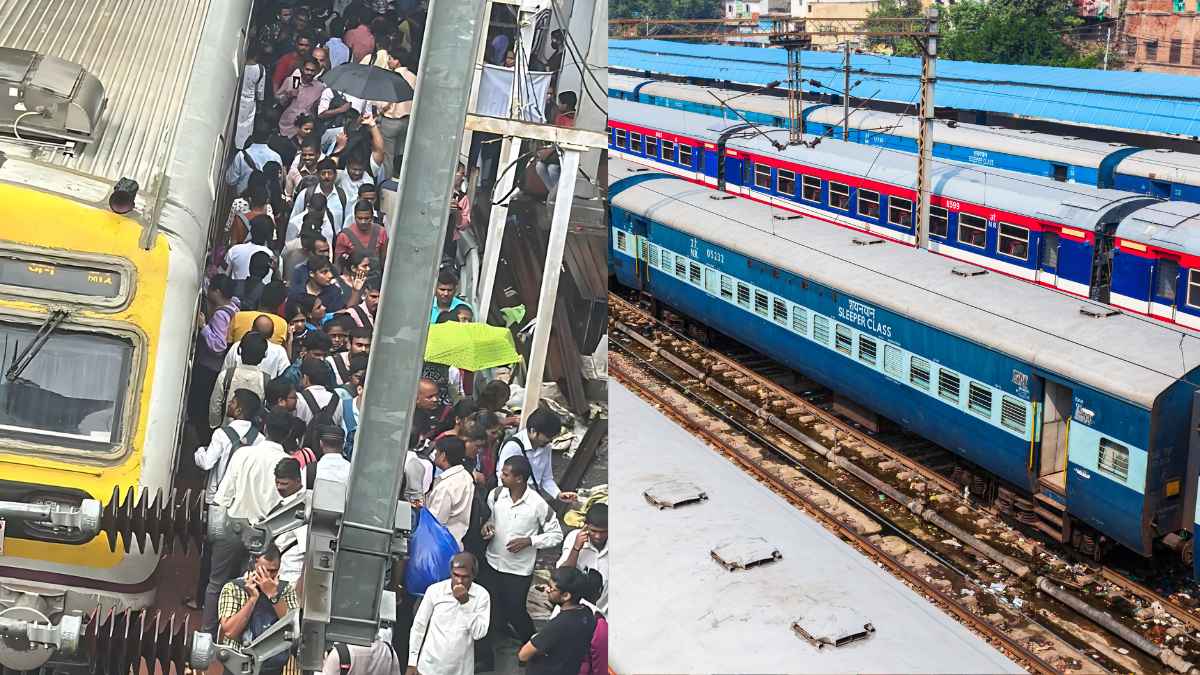Mumbai’s trans-harbour suburban rail line faced an unexpected shutdown on Friday morning after a critical engineering lapse during a major infrastructure project triggered a halt in Thane–Vashi train services, stranding thousands of commuters during peak hours.
The disruption, which lasted from 7:10 a.m. to 11:30 a.m., was caused by a misaligned 70-tonne girder being launched as part of the Airoli-Katai Naka elevated road project. The girder, intended to span the active railway corridor, tilted precariously, leading to an immediate safety shutdown across the route. This mishap led to the cancellation of 58 local train services and sparked widespread commuter frustration. The Mumbai Metropolitan Region Development Authority (MMRDA), the agency spearheading the road overbridge construction, had taken a scheduled night block between 1 a.m. and 4 a.m. to position the final girder of a series of ten. While nine had been placed successfully earlier in the week, the last unit’s structural instability triggered the need for urgent corrective action. Another block was imposed between 8 a.m. and 11:30 a.m. to stabilise and secure the girder.
What unfolded next was a logistical collapse across Mumbai’s eastern corridor. As local train services halted, commuters turned to alternate means, overwhelming municipal bus fleets and auto-rickshaw networks. Navi Mumbai and Kalyan Dombivli municipal transport services operated only 43 additional buses between them—nowhere near sufficient for the volume of displaced rail passengers. The sudden spike in road traffic led to severe congestion, particularly around Airoli, Turbhe, and Thane.
The lack of timely public communication only deepened the commuter crisis. Many passengers, unaware of the reason behind the delay, waited in confusion at platforms. Misinformation—including false reports of a bridge collapse—spread on social media, heightening anxiety. Commuters expressed frustration over the poor dissemination of updates from railway authorities, calling for better coordination and real-time communication during service disruptions.
In response, MMRDA officials confirmed that all safety protocols were in place and stated the incident was unforeseen. They assured that the tilted girder was swiftly secured in compliance with Indian Railways’ safety standards. The agency expressed regret for the inconvenience and reiterated its commitment to completing the Airoli-Katai Naka road project with utmost safety and efficiency.
While infrastructure expansion is critical to Mumbai’s growing mobility demands, this incident underscores the delicate balance between rapid development and commuter safety. Public transport is the lifeline of the city’s workforce, and even minor engineering oversights can ripple into citywide paralysis. In a megapolis striving toward sustainable and resilient urban infrastructure, the priority must remain on meticulous planning, transparent communication, and efficient crisis management.
Also Read : Rajasthan Enforces Blackouts and Cancels Trains Amid Tensions


